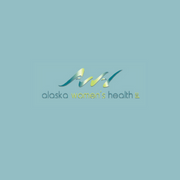
Polycystic Ovary Syndrome (PCOS) is a hormonal disorder that affects menstruation and causes infertility. The sooner this condition is diagnosed by an OB-GYN, the lower the risk of serious complications occurring. This guide explains a few of the basics so you can spot this condition and take appropriate measures.
What Causes PCOS?
Women with PCOS often have excess male hormones, known as androgens. Decreased levels of estrogen and progesterone also play a role in causing symptoms. Additionally, small cysts develop in the ovaries, which prevent normal ovulation.
While an underlying cause has yet to be discovered, certain risk factors increase the chance of developing the condition. When other women in your family have PCOS, you’re more likely to be affected. Insulin resistance is another factor, and many women who are obese also experience insulin resistance.
What Are the Symptoms?
Many women are unaware they have PCOS until they experience fertility issues. In other cases, symptoms may present immediately after the first menstruation. Common symptoms include male pattern hair growth— caused by excessive male hormones—acne, heavy bleeding during menstruation, fewer periods, headaches, and weight gain.
How Is It Treated?
 Many OB-GYNs recommend certain lifestyle changes as an initial treatment for PCOS. If obesity plays a role, eating a nutritious diet and exercising regularly can help you maintain a healthy weight.
Many OB-GYNs recommend certain lifestyle changes as an initial treatment for PCOS. If obesity plays a role, eating a nutritious diet and exercising regularly can help you maintain a healthy weight.
Managing type 2 diabetes also reduces insulin resistance, which, in turn, may stop the symptoms associated with PCOS.
Balancing hormones is important, which can be achieved by taking birth control pills.
If you’ve noticed the symptoms of PCOS, consult with an OB-GYN at Alaska Women's Health PC in Anchorage. Offering more than three decades of experience to patients, they diagnose and treat women’s health conditions like endometriosis, incontinence, and infertility. Schedule an appointment today by calling (907) 563-7228. You can also visit the website for the full list of gynecological services.
About the Business
Have a question? Ask the experts!
Send your question

